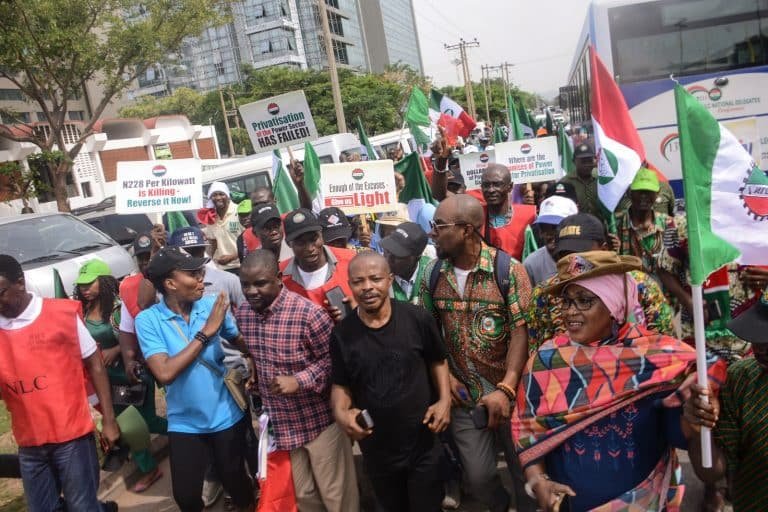Minister of Labour and Employment, Nkeiruka Onyejeocha, has voiced concerns about the negative impact of the ongoing nationwide strike by Organised Labour on the Nigerian economy and citizens’ welfare. The strike, initiated by the Nigeria Labour Congress (NLC) and the Trade Union Congress (TUC) on June 3, followed unsuccessful negotiations with the federal government over the minimum wage.
The industrial action has significantly disrupted various sectors, leading to the closure of schools, hospitals, banks, and offices. In an interview on Monday, Onyejeocha emphasized the adverse effects of the strike on the country’s healthcare system, particularly highlighting the implications of the national grid shutdown on medical procedures.
“We know what the issues are and we hope they will be resolved, but going to strike will take the matter to the extreme with a lot of negative implications to both our economy and the welfare of the citizens,” she said. “If the strike continues, the citizens will suffer and they have started suffering.”
The Minister expressed concern about students unable to take exams due to transportation issues, daily wage earners who are left without income, and the broader economic impact of halted business activities. She stressed that the strike’s continuation would lead to further suffering for many Nigerians who rely on daily earnings and essential services that are now inaccessible.
Onyejeocha concluded by urging for a resolution to the issues at hand to mitigate the detrimental effects on the economy and social life in Nigeria.
